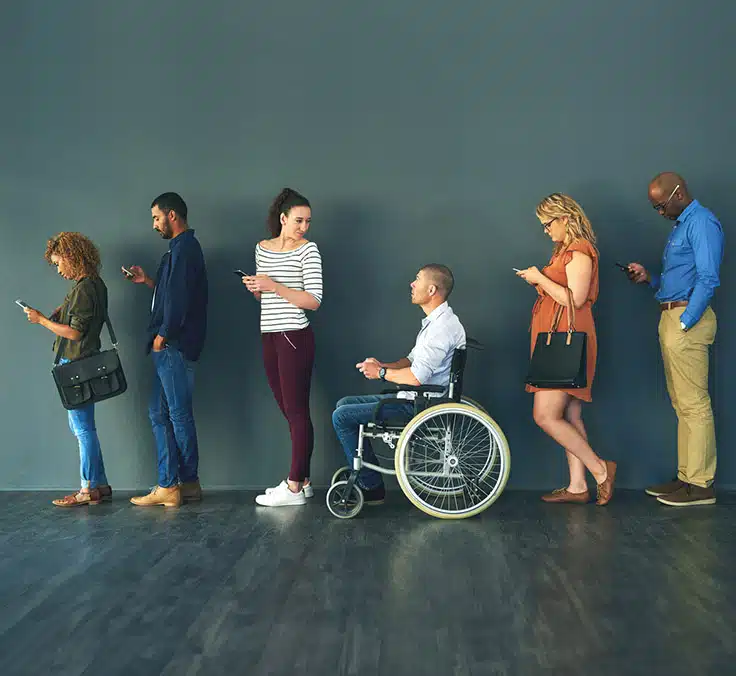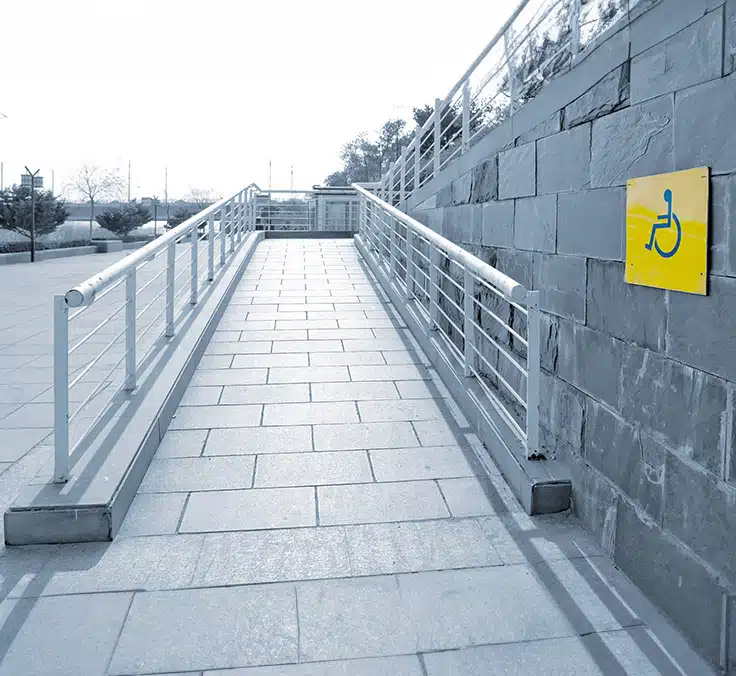SUSTAINABILITY| 01.02.2025
Mónica Mir: “Discrimination against people with disabilities is reduced when you know them”
Promoting empathy and respect are key elements in the fight against the bullying suffered by eight out of 10 children with intellectual disability. This is the view of Mónica Mir (Madrid, 1982), General Manager of the Best Buddies Foundation. She well knows what she is talking about because she has a son with a disability that changed her life. Her work aims to change people’s prejudices.
1. Some parents stop going to the playground because children don’t want to play with other children with disabilities. Is there still exclusion?
Exclusionary behavior toward children with disabilities continues to exist, especially when they cohabit with other boys and girls in recreational spaces, places where they are stigmatized and discriminated against the most. For example, playgrounds show the worst lack of inclusion, unlike in school classrooms, where staff generally know the strengths and areas of improvement of children with disabilities.
2. The main objective of the Best Buddies Foundation is to help children with disabilities forge friendships. How do you achieve this?
Friendship has a clear impact on the well-being of all. The Best Buddies Foundation organizes meetings for children with intellectual disabilities that are designed and adapted to ensure that everyone can participate in activities like cooking or climbing. The aim is to promote relationships and mutual understanding between children, since better understanding a person and sharing special moments decreases the likelihood of bullying.
3. Why is it important to have quality relationships? What are the benefits? What do you think is the key to fostering friendship in general?
Several studies have found that the quality of people’s friendships is the most important factor in their happiness throughout life. Not only is it important to have them, but fostering diverse friendships is also key. Although we tend naturally to get together with people that are similar to us, it is enriching to have friends with different perspectives and experiences. It enables us to learn and grow beyond our comfort zone.
4. You work in several countries. Does culture have an influence in broadening inclusion?
Spain is a country where social relations carry quite significant weight, more so than in other cultures. Therefore, the absence of such relationships has even greater impact due to the great importance we place on social life. Some cultures have a higher level of empathy with the different abilities a person may have. For example, Japanese people tend to be more respectful and supportive when socializing with people with different types of disabilities.
5. In recent years, bullying has increased in classrooms. How do you think this issue should be addressed?
Some 80% of children with disabilities suffer bullying, compared to 9 and 13% of the general population, which shows the greater vulnerability. These are data from the Spanish Confederation of People with Physical and Organic Disabilities.To deal with this, I think prevention is crucial. This can be done through awareness-raising workshops that stimulate children to think about stereotypes and encourage empathy and respect. Also in school, they can help children learn to value diversity and reduce bullying types of attitudes as much as possible.
6. What advice would you give to families whose children share school or recreational space with children with intellectual disabilities?
Parents of non-disabled children are fundamental in the fight for inclusion. They should not be afraid to approach and talk to a parent who has a child with intellectual disabilities, as this would allow them to explain to their own children why certain other children need to yell or manifest certain behaviors. Both people with disabilities and their families greatly appreciate it when other children play and talk to them after school. Small gestures can end up becoming the best time of day for them.
7. What are main challenges you face as a director in achieving a more inclusive society?
I think the main challenge we have is reversing the negative perception that exists about intellectual disability. At Best Buddies Foundation we seek to promote a positive view of intellectually disabled people. They should be valued for the virtues and benefits they bring to society. Also, we want to engage more volunteers and ambassadors so that they can disseminate the value of diversity and equal opportunities and thus help to change the image that still exists about intellectually disabled people.
8. How do you think businesses can contribute to improving inclusion, equality and diversity? What benefits do you think diverse and inclusive environments can offer?
Companies like MAPFRE play a crucial role in fostering inclusion, equality and diversity, because it has been shown that it not only allows them to make progress in something as important as reducing inequalities, but also makes them more competitive, innovative and, of course, more productive. This is because their employees perceive that they are working in an organization that respects people, cares about society and offers equal opportunities. They can also contribute products and services aimed at meeting these people’s needs and, of course, implement personnel policies to prevent discrimination.
RELATED ARTICLES:




